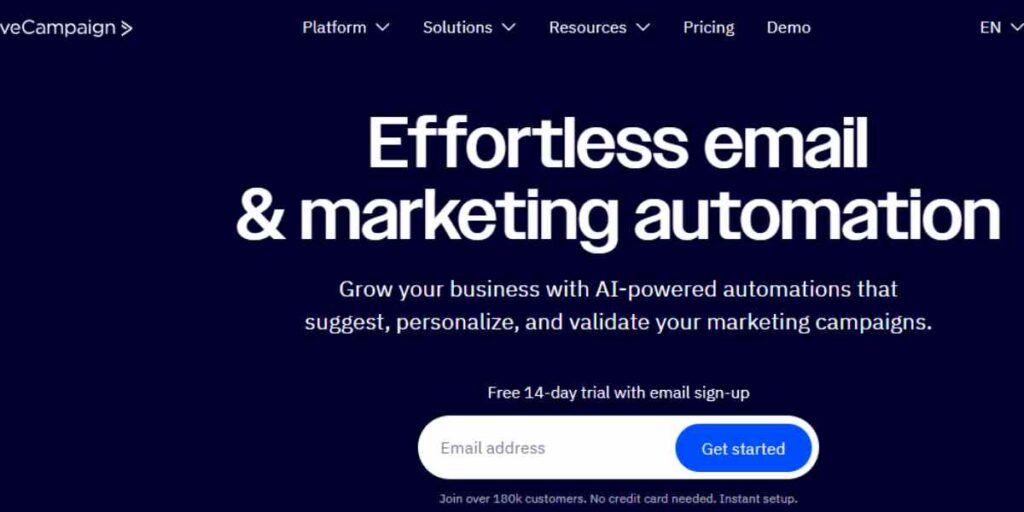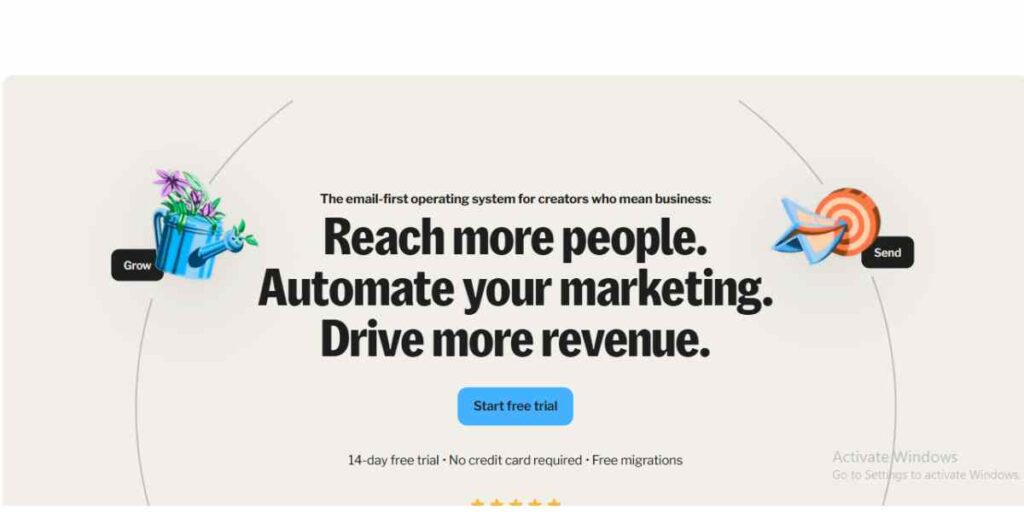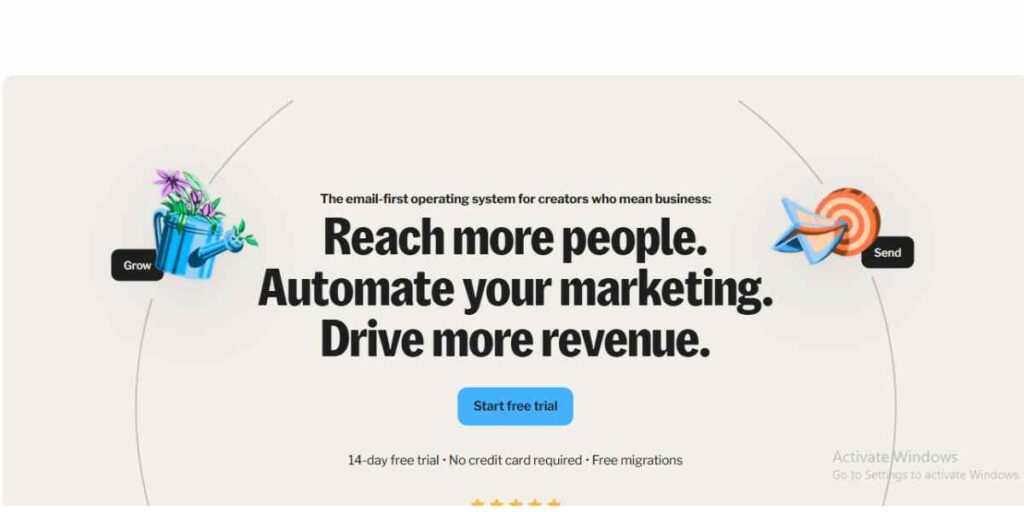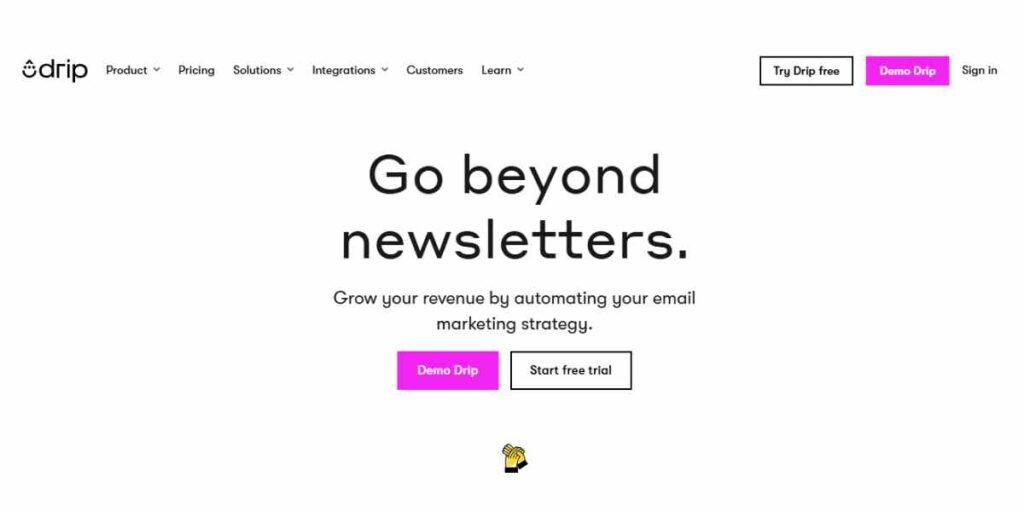In today’s fast-paced digital economy, email marketing remains one of the most cost-effective and ROI-driven strategies for business growth. Whether you’re a small startup, an eCommerce store, or a B2B enterprise, using the right email marketing platform can help you nurture leads, convert customers, and retain loyal followers.
In this guide, we explore the best email marketing platforms for 2025 to help you make the most informed decision for your business.
Also check: Best Ecommerce Platforms and Software: The Ultimate 2025 Guide for Online Businesses
Why Email Marketing is Still Relevant in 2025
Email marketing continues to deliver unmatched ROI. According to recent studies, email yields an average of $42 for every $1 spent, making it one of the most powerful tools for online marketers. With increased personalization, automation, and AI-powered analytics, email marketing is not just relevant—it’s essential.
Key Features to Look for in an Email Marketing Platform
When choosing an email marketing service in 2025, consider these critical features:
- Ease of use and user-friendly interface
- Automation and workflows
- List segmentation
- Advanced analytics and reporting
- A/B testing capabilities
- Integrations with CRM, eCommerce, and social media tools
- Compliance with privacy laws (GDPR, CAN-SPAM, etc.)
1. Mailchimp – Best All-in-One Email Marketing Platform
Mailchimp remains a dominant force in the industry thanks to its robust features and user-friendly interface. It’s ideal for beginners and small businesses.
- Free plan available
- Powerful automation tools
- AI-driven content suggestions
- Advanced analytics dashboard
Pros:
- Intuitive drag-and-drop editor
- Huge template library
- CRM integration
Cons:
- Higher-tier plans can be expensive
2. ActiveCampaign – Best for Automation and CRM Integration
ActiveCampaign is the go-to for businesses that rely heavily on automation and customer relationship management.

- Advanced automation builder
- Integrated CRM
- Predictive sending powered by machine learning
Pros:
- Excellent segmentation
- Comprehensive reporting
- SMS and email marketing
Cons:
- Learning curve for beginners
3. ConvertKit – Best for Creators and Bloggers

ConvertKit is designed with content creators in mind, from bloggers to YouTubers and online educators.
- Simple automation builder
- Landing pages and forms included
- Commerce features for selling digital products
Pros:
- Easy-to-use interface
- Tag-based subscriber system
- Great for audience nurturing
Cons:
- Limited design customization
4. GetResponse – Best for Webinar and Funnel Marketing

GetResponse offers more than email—it’s a complete marketing suite.
- Email marketing + webinar hosting
- Prebuilt sales funnels
- Conversion-focused landing pages
Pros:
- Powerful automation features
- Excellent for sales teams
- Customizable funnels
Cons:
- Slightly outdated UI
5. Klaviyo – Best for eCommerce Stores
Klaviyo is built for eCommerce, especially Shopify, BigCommerce, and WooCommerce users.
- Deep data integration with online stores
- Behavior-based targeting
- Prebuilt flows for abandoned cart, win-back, and upsell
Pros:
- High deliverability rates
- Customizable automation
- Great ROI for online retailers
Cons:
- More suitable for advanced users
6. Moosend – Best Budget-Friendly Option
Moosend offers enterprise-level features at a budget-friendly price point.
- Affordable pricing
- Automation workflows
- AI-based product recommendations
Pros:
- Excellent value for money
- Real-time analytics
- GDPR-compliant features
Cons:
- Smaller template library
7. HubSpot Email Marketing – Best for B2B and Enterprise
HubSpot is a powerful platform that combines email with sales, marketing, and customer service tools.
- Integrated with HubSpot CRM
- Smart content personalization
- Visual automation editor
Pros:
- Unified customer view
- Enterprise-grade features
- Great support and resources
Cons:
- Premium features can be pricey
8. Brevo (Formerly Sendinblue) – Best for Transactional Emails
Brevo offers a balance of marketing and transactional email capabilities.
- Email and SMS campaigns
- Marketing automation
- Advanced contact management
Pros:
- Supports transactional emails
- Chat and CRM features included
- Easy drag-and-drop builder
Cons:
- Slightly complex navigation
9. MailerLite – Best for Simplicity and Value
MailerLite is known for its clean design and simple user interface.
- Advanced automation
- Drag-and-drop editor
- Landing pages and forms
Pros:
- Excellent for small businesses
- Free plan with generous limits
- Modern design templates
Cons:
- Limited integrations compared to competitors
10. Drip – Best for Advanced Segmentation in eCommerce

Drip is built for marketers who want precise targeting and advanced segmentation.
- Visual workflow builder
- Real-time customer behavior tracking
- Deep integration with Shopify
Pros:
- Powerful personalization
- Dynamic content blocks
- ECommerce-specific features
Cons:
- Learning curve for new users
How to Choose the Right Email Marketing Platform
Choosing the best email marketing software depends on your specific goals:
- Are you selling digital products? Try ConvertKit.
- Running an eCommerce store? Go for Klaviyo or Drip.
- Need a powerful CRM integration? Use ActiveCampaign or HubSpot.
- Want a free or low-cost solution? Look into MailerLite or Moosend.
Trends Shaping Email Marketing in 2025
To stay competitive, look out for these email marketing trends:
- AI-driven content creation and recommendations
- Hyper-personalization at scale
- Interactive emails with embedded forms and surveys
- Dark mode optimization
- Voice-activated email previews
Final Thoughts About Best Email Marketing Platforms for Growing Your Business in 2025
Email marketing is evolving, but its value in building customer relationships remains unchanged. Whether you’re just starting or scaling your campaigns, investing in the right platform can dramatically increase your outreach and conversion potential in 2025.
FAQs About Best Email Marketing Platforms for Growing Your Business in 2025
What is the most beginner-friendly email marketing platform?
Mailchimp and MailerLite are considered the easiest for beginners thanks to their intuitive UIs and helpful tutorials.
Can I switch platforms later without losing data?
Yes, most platforms allow you to export/import subscriber lists and campaign data, though some manual work may be required for templates and automations.
Are there any truly free email marketing platforms?
Yes, Mailchimp, MailerLite, and Moosend offer free plans with limited features perfect for small lists.
Which email marketing tool is best for automation?
ActiveCampaign and GetResponse offer the most advanced automation capabilities in 2025.
How can I improve my email open rates?
Segment your audience, personalize your emails, use compelling subject lines, and test send times to optimize open rates.
